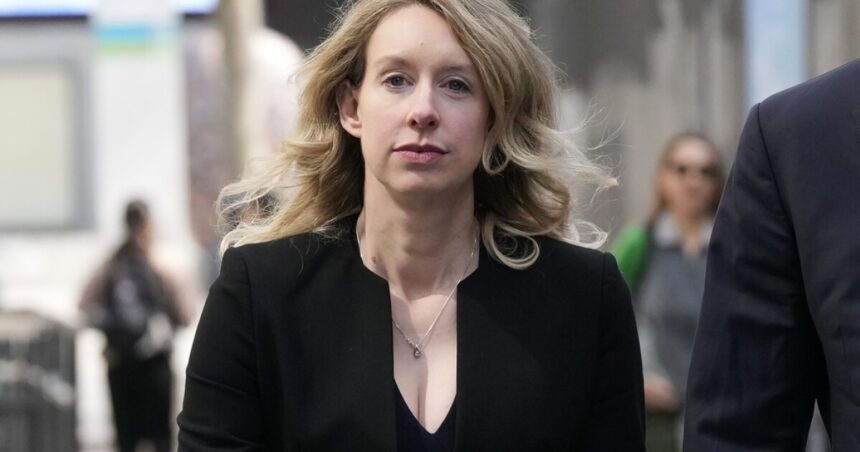A panel of federal judges spent two hours on Tuesday grappling with a series of legal issues in an attempt to overturn a fraud conviction that landed Theranos CEO Elizabeth Holmes in prison after a swift rise to Silicon Valley stardom.
The hearing took place in the San Francisco appeals court almost two and a half years after a jury found Holmes guilty of orchestrating a blood-testing scam that epitomized greed and hubris in Silicon Valley. Theranos, the Palo Alto startup she founded after leaving Stanford University in 2003, was her instrument of deception as she aimed to revolutionize the healthcare industry.
Currently serving an 11-year sentence in a Bryan, Texas prison, Holmes did not attend the hearing. However, her parents and partner, Billy Evans, were present in the courtroom, alongside federal prosecutors who initially presented the U.S Justice Department’s case. The three appeals court judges — Jacqueline Nguyen, Ryan Nelson, and Mary Schroeder — remained tight-lipped on their stance regarding Holmes’ conviction, emphasizing the need for compelling evidence to overturn the jury’s verdict.
Nelson appeared conflicted, showing empathy when Holmes’ attorney argued for a close examination of the trial outcome, especially since the jury acquitted her of four counts and could not reach a decision on three others.
The judges did not give a specific timeline for their ruling, emphasizing that it would follow in “due course.” It can take varying durations for appeals courts to rule on criminal convictions.
Despite a scheduled release date of August 2032 due to good behavior, Holmes will remain behind bars.
Crime
Theranos CEO Elizabeth Holmes has federal prison sentence reduced again
8:08 PM, May 07, 2024
A decade ago, Theranos was hailed as a beacon of U.S. ingenuity, with then-Vice President Joe Biden among its admirers. Holmes, with a fortune worth $4.5 billion, was a media sensation on the back of claims that Theranos devices could detect various diseases using a few drops of blood. However, the technology’s unreliability, which Holmes and her former partner Ramesh “Sunny” Balwani tried to conceal, led to the company’s downfall and criminal charges against both.
The scandal sought to dismantle the “fake it ’til you make it” mentality pervasive in Silicon Valley. In addition to Holmes’ arguments, the appeals panel heard from attorneys representing Balwani, who is seeking to appeal his 13-year prison sentence following a separate trial in July 2022.
Balwani alleges that federal prosecutors manipulated evidence to sway the jury against him, presenting a narrative inconsistent with that in Holmes’ trial. Unlike Holmes, Balwani was convicted on all 12 counts of fraud and conspiracy he faced, contributing to his longer sentence. He is slated for release from a Southern California federal prison in November 2033.





